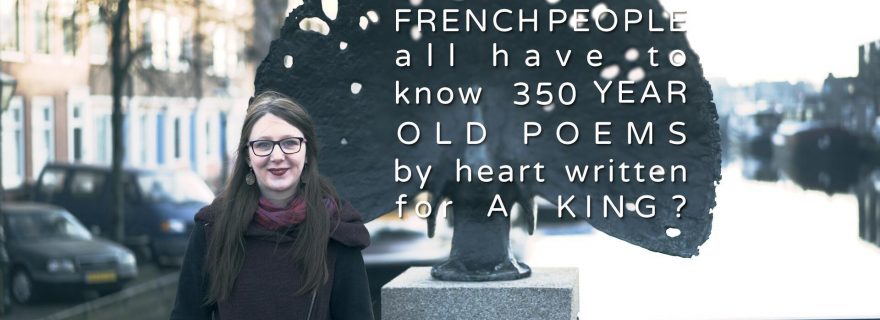LUCAS Explains #9: How come French people all have to know 350 year old poems by heart written for a king?
Summer is over and it is time for children to go back to school, where we expect them to gain basic knowledge and skills. But what makes one book more important than another when creating a national curriculum? Céline rethinks the role of one of the most popular books in the French education.
Soon after they were published in 1668, the Fables of Jean de La Fontaine became a teaching tool, because educators assumed they were also used as part of the royal education. More than 350 years later, studying the Fables has become a tradition across French primary schools, where young children have to both learn them by heart and recite them in front of their classmates. By preserving this tradition, it makes the Fables appear to be essential knowledge in both French culture and identity. In this video, Céline shows how it also exemplifies the role of tradition and history in the way children are taught literature.
Céline Zaepffel: 'How come French people all have to know 350 year old poems by heart written for a king?'ABOUT LUCAS EXPLAINS
In the video series LUCAS Explains, young researchers tell
about current societal and cultural topics from a historical or fresh
point of view. The subjects range from diversity to national identity
and from inclusiveness to migration. The videos stretch the history from
the Classics to the present and from Europe to Asia. LUCAS Explains is published every other Tuesday. LUCAS Explains is a video series of Leiden University Centre for the Arts in Society and SOON media Amsterdam.
THANKS TO
The Netherlands Organisation for Scientific Research
Leiden University
Livia Hirsch
CREDIT PICTURES
Le Prix de Sagesse ou La Fontaine en Jeu, Paris, Demonville, 1810. Source : The British Museum.
Isabel Young, Les Fables de La Fontaine : les animaux, Épinal, Imagerie d’Épinal, 2009.
Alfred Theulot and Benjamin Rabier, Dites-nous votre fable, Paris, Boivin, ca. 1910.
Jean de La Fontaine and Benjamin Rabier, Fables de La Fontaine, Paris, Jules Tallandier, 1982.
Jean Ballesdens,Les fables d’Escope Phrygien, facsimile (1645), Reims, Éditions et presses universitaires de Reims, 2011.
Philippe Mignon, Fables de La Fontaine, Paris, Nathan, 2007.
Various authors, La Fontaine aux fables, Paris, Delcourt, 2010.
© Céline Zaepffel and Leiden Arts in Society Blog, 2020. Unauthorised use and/or duplication of this material without express and written permission from this site’s author and/or owner is strictly prohibited. Excerpts and links may be used, provided that full and clear credit is given to Céline Zaepffel and Leiden Arts in Society Blog with appropriate and specific direction to the original content.



0 Comments